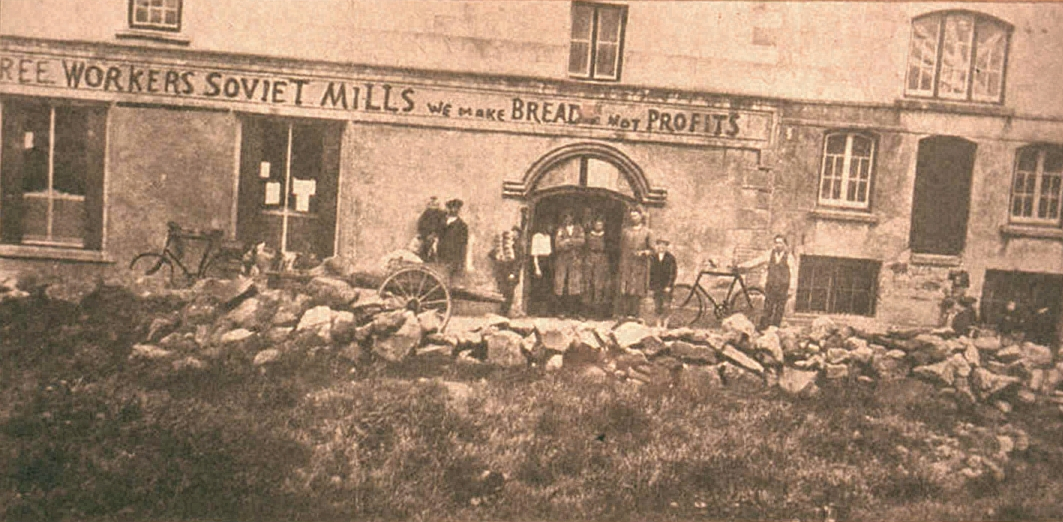Introductions to economics usually start with gushing tales about the magic of the free market. It is usually stated that the free market allows everyone to get the best quality goods at the cheapest prices. The magical invisible hand guides everyone to the best place without any unnecessary government intervention. Below is a link to a video typical of the kind. (I’ll ignore for the moment that it completely misrepresents what Adam Smith said). Its short and simple, but it is a simple argument. This is the typical free market argument with its claim that left alone it will bring the best world for everyone. So in the video it compares two bakers offering bread and the consumer chooses either … Continue reading “The Flaw Of The Invisible Hand”
Year: 2012
Unarmed Police
The recent shootings in Sandy Hook, Newtown, Connecticut have made many question the role of guns in American society. This is a sharp contrast the Ireland where we have so few guns that even the police are unarmed. To an American this must seem like madness or liberalism run wild, but it actually works very well. In fact it is a policy that is universally supported across the political spectrum and among commentators. Instead of relying on the threat of violence, they rely upon their authority and consent of the people. As a result, the police force is one of the few institutions in Irish society that people still trust and respect. The reason the Irish police (generally referred to … Continue reading “Unarmed Police”
Irish Soviets 1919-23
Workers throwing out the boss, hoisting a red flag and proclaiming a Soviet are not something that you would normally associate with Irish history. That sort of stuff is normally presumed to have happened in Europe but not Ireland. Most history books describe all Irish people as being united with the sole aim of driving the British out. Yet Ireland was caught in a wave of Socialism similar to that in Italy and France. During the War of Independence over 100 Soviets were set up in Ireland. Although it is now forgotten, many thought Bolshevism was a greater threat to British rule than Sinn Fein. All across Europe there were strikes and revolutions. The mass slaughter of the First World … Continue reading “Irish Soviets 1919-23”
Misunderstanding Hayek And The Road To Serfdom
“The Road To Serfdom” by Fredrick Hayek is a disappointing book. Conservative bloggers often race about it claiming it has great insights into modern politics. While I disagree with the Austrian school of economics I read it to here the other point of view. I found it a boring, out dated book that didn’t have anything particularly original or insightful to say. It’s mainly concerned with saying a totalitarian state where the government controls everything doesn’t work (you don’t say). The book might have been relevant when it was published, but I am at a loss to see its use today. I think to a large extent Hayek has been misunderstood. I have regularly heard people use Hayek to criticize … Continue reading “Misunderstanding Hayek And The Road To Serfdom”
Do Generous Welfare Benefits Lead To High Unemployment? (Long Version)
(This was originally written as a college essay. For this reason it is 3,000 words long and contains a lot of economics terms references. It is meant as a help for anyone who wants an in-depth study of the topic with supporting facts and figures. For a short version in plain English see here. The essay was marked the best in my class of 80 students. It won the Undergraduate Award 2012 in Economics along with someone from Yale. I’m not trying to boast but I’m over the moon.) Abstract This paper discusses the conventional wisdom that unemployment benefits create a disincentive to work, the so-called “welfare trap”. It examines if higher benefit levels or longer benefit durations lead to higher unemployment … Continue reading “Do Generous Welfare Benefits Lead To High Unemployment? (Long Version)”
The Mythical Laffer Curve
Conservatives everywhere condemn the use of tax increases for fear of the Laffer Curve. This is the idea that if taxes are too high, people will lose the incentive to work and therefore revenue will actually decrease. It is most famous for its counter-intuitive argument that a tax cut could increase revenue. Unfortunately there is little or no evidence to support this claim. History clearly shows that cutting taxes does not increase revenue. The Laffer curve is a political idea used to justify tax cuts for the rich. It is not based on sound economics. Most economists know the Laffer Curve isn’t true. An IGM survey of economists found that not a single one of them agreed that a tax … Continue reading “The Mythical Laffer Curve”

